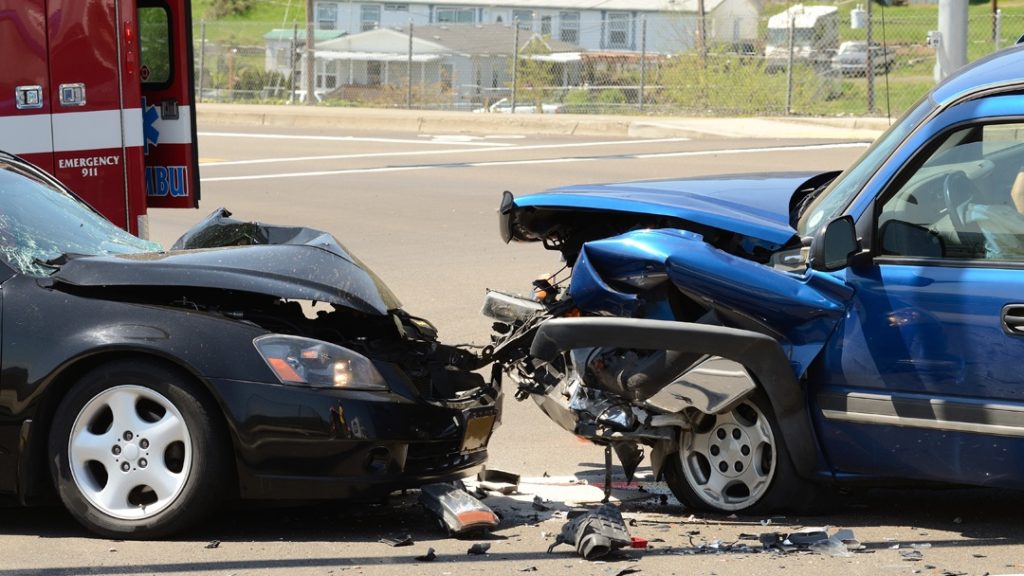
Who Are The Better Drivers, Men or Women?
WHO ARE THE BETTER DRIVERS, MEN OR WOMEN? WHO ARE THE SAFER DRIVERS
For years there has been an ongoing debate: who are the better drivers, men or women? While everyone has their own opinions and experiences, statistics show that male drivers are significantly more likely to get into a motor vehicle accident. But why is this, and does is really mean that women are better at driving?
There are several factors that affect this difference in accident and death rates between the two sexes:
– More miles. One of the biggest factors in men having more accidents is simple – they drive more. More miles means men are more likely to have an accident, no matter how well they drive. In fact, the number of women that are involved in serious accidents has been steadily rising as more women obtain licenses and drive more miles. However, more men than women still are involved in serious motor vehicle related accidents even if you account for total miles driven.
– Reckless behavior. Men, especially younger men, are more likely to participate in reckless driving behavior, such as speeding and driving while intoxicated. This greatly increases the chances of an accident, especially a fatal one. This is usually attributed to the fact that young men feel that they are invincible, and that the statistics just don’t apply to them.
– Seat belts. Women are more likely than men to wear their seat belt. Even if they had the same number of accidents, this would still mean that more men die in accidents, given seat belts have been proven to save lives.
It’s not just the number of accidents that are different between men and women; they also have different types of accidents. Women are generally involved in minor accidents that take place in traffic, particularly at intersections. Men are more likely to be involved in one-car accidents that are not in traffic.
The explanation for this is that while women may make silly mistakes, like missing a red light, men are more likely to crash because they are speeding, driving recklessly, or driving under the influence. This type of accident is more likely to be fatal. While the number or total accidents is becoming more equal for men and women, there are still more male fatalities.
For older people, there are fewer differences between men and women drivers, but this doesn’t apply for younger men and women. While young women exhibit driving behavior similar to older people, young men participate in more reckless behavior. That is why insurance rates for adult males and females are often the same, while insurance rates for males under twenty-five are much higher than rates for females of the same age.
While gender can be a good indicator of driving habits, the person matters more. There are many teen boys who are perfectly safe drivers, and many older women who have frequent accidents and display very risky driving behavior.
Statistics on male and female driving safety
Let’s explore the statistical side of male vs. female driving safety.
You’ll find that men are more prone to fatal accidents and certain types of collisions.
Whereas women, though more often injured in accidents, are less likely to lose their lives.
Men are more likely to be involved in fatal accidents than women, even when accounting for the fact that they drive more miles.
You’re more likely to find men involved in fatal accidents than women, even when you consider that they drive more miles. Statistics reveal that men are more likely to be the cause of, and involved in, fatal accidents. This fact raises questions about who are safer drivers.
Accounting for the fact that men drive more miles, there’s still a higher likelihood of them being in serious accidents. You might think that since men drive more, they’re more likely to have accidents. But even after adjusting for this, men still hold the record. It’s a tough pill to swallow, but the data doesn’t lie.
Men are more likely to be involved in certain types of accidents, such as head-on collisions and rollovers.
Not only are men more frequently involved in fatal accidents, they’re also more likely to be part of specific accident types, such as head-on collisions and rollovers.
While you’re cruising down the highway, the man in the car next to you is statistically more prone to be involved in certain types of accidents.
These aren’t just fender benders we’re talking about. No, we mean the scary, life-threatening accidents like head-on collisions and rollovers.
This doesn’t mean every male driver is a risk on the road, but it does suggest they tend to be involved in more serious accidents than their female counterparts.
Women are more likely to be injured in accidents, but they are less likely to be killed.
While it’s easy assume women are safer drivers, they’re actually more prone to injury in accidents, but interestingly, less likely to die as a result. Research on gender and road safety reveals intriguing trends.
Women drivers are more vulnerable to injury in car accidents due to:
- Lower physical strength which may result in more severe injuries.
- Higher likelihood of being involved in side-impact and rear-end accidents.
However, female drivers are less likely to be killed in accidents because:
- They tend to drive less aggressively than men.
- They’re more likely to wear seat belts.
This data suggests that men or women can be safer drivers; it depends on the circumstances. It’s crucial for all drivers, regardless of gender, to drive defensively and responsibly.
Reasons why men engage in risky driving behaviors
Why do men tend to engage in risky driving behaviors?
Factors such as overconfidence, peer pressure, lack of experience, substance abuse, and a risk-taking personality often play into this.
Let’s shed some light on these points and see how they contribute to the overall picture.
Overconfidence
Overconfidence often leads men to engage in risky driving behaviors.
Men’s overconfidence often leads them to believe they’re better drivers than they actually are. This overconfidence can cause men to engage in risky driving behaviors, increasing their likelihood of causing traffic accidents.
Consider the following:
- Many drivers, especially men, tend to overestimate their driving abilities. They might:
- Spend more time on the road, increasing their exposure to potential accidents.
- Pass driving tests with ease, leading them to believe they’re better drivers.
- Overconfidence can affect insurance rates for all drivers. With more accidents, insurance companies raise their rates, which:
- Impacts everyone, not just the overconfident drivers.
- Creates a financial burden on responsible drivers who must pay higher insurance premiums.
Peer pressure
Men’s susceptibility to peer pressure often leads to risky driving behavior, and it’s a significant factor in why they’re involved in more traffic accidents.
Studies show men, when it comes to caving to peer pressure, are more likely to speed, not wear a seatbelt, and engage in other risky behaviors. A study finds women more likely to crash into each other than men, but women aren’t necessarily the best drivers either.
Women, however, tend to share the road better. Females tend to be better drivers than men overall, as they’re generally more cautious and less likely to engage in risky behavior. So, it’s not a competition, but a shared responsibility for safety.
Lack of experience
Despite being well-versed in the basic rules of driving, you’re more likely to engage in risky driving behaviors due to a lack of experience, and this is especially true for men.
Research shows that men, particularly those new to car leasing, tend to be overconfident with their cars, leading to a high rate of accidents. The severity of these accidents ranges from pedestrian accidents to motorcycle and ATV accidents.
Here’s why this happens:
- Overconfidence in handling complex driving situations:
- Motorcycle accidents
- Accidents involving pedestrians
- Underestimation of potential risks:
- Accidents on an ATV
- High-speed car accidents
These findings are based on years of researchers’ hard work. It’s crucial to grasp the gravity of these consequences and strive for safer driving habits.
Substance abuse
In addition to overconfidence, men are also more likely to take risks behind the wheel because of substance abuse. Alcohol or drugs can impair your judgment, slow reaction times, and heighten the likelihood of men making risky decisions on the road.
Furthermore, men might feel invincible or overly relaxed, leading to careless driving. This is especially true for younger males who are more prone to substance abuse issues.
Risk-taking personality
Risky driving behaviors can increase the chances of getting into road accidents. The reasons for this risk-taking personality are numerous:
- Thrill-seeking:
- Some men are adrenaline junkies. The thrill of speed, the danger of weaving through traffic, it’s a high that’s hard to match.
- This reckless behavior isn’t just about the thrill, it’s about a feeling of invincibility, a belief they won’t get hurt.
- Dominance assertion:
- The car becomes an extension of self, a tool to assert dominance over others on the road.
- This need to be ‘alpha’ can lead to aggressive driving, increasing the risk of accidents.
Frequently Asked Questions
How Do Cultural Factors Influence the Driving Behaviors of Men and Women?
Cultural factors significantly affect your driving behaviors. They may dictate gender roles and expectations, shaping how you perceive and react to situations on the road, potentially leading to different driving styles for men and women.
What Role Does Age Play in the Driving Safety of Men and Women?
Age plays a significant role in driving safety. As you age, your reflexes might slow down. However, experience can also improve driving skills. It’s not just a gender issue, it’s about individual abilities and circumstances.
How Does the Type of Vehicle Driven Impact the Safety Records of Men and Women?
Larger vehicles might seem safer, but they’re harder to control. Speedy sports cars can tempt someone to drive faster. It’s about your driving habits, not your gender.


